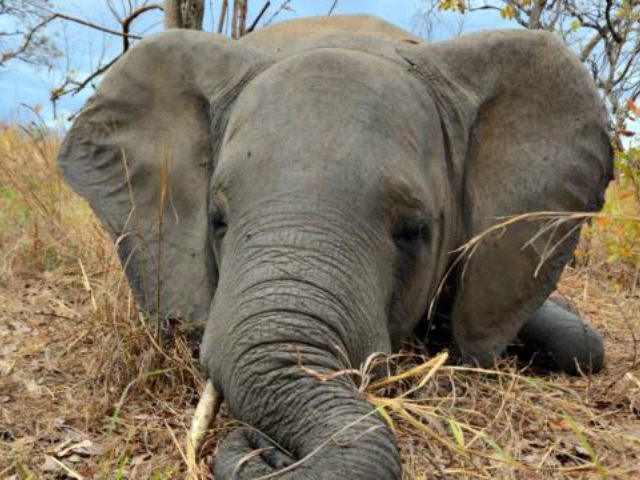President Donald Trump’s administration is under fire for relaxing former President Barack Obama’s import ban on African big game trophies, but anyone who genuinely loves wild animals should support it.
Inevitably, the liberal media is spinning the decision by the U.S. Fish and Wildlife Service as a retrograde step designed to please vested interests. Trump’s sons Eric and Donald Jr are both hunting enthusiasts. As, of course, is Interior Secretary Ryan Zinke.
But the Trump administration is quite right to rescind the ban, which means that U.S. game hunters will once more be able to bring back elephant head trophies from Zimbabwe and Zambia.
A couple of years ago, in the wake of the Cecil the Lion outrage, I flew to Zimbabwe to find out more about the African big game industry.
For a time it seemed as if the entire world was united in condemning Walter Palmer, the hapless Minnesota dentist, who had shot Cecil.
I wanted to hear whether there was another side to the story. And there is.
Here is what a wildlife conservationist in Zimbabwe, Trevor Lane, told me about the big game trophy hunting industry:
Lane runs the Bhejane Trust, a charity dedicated to preserving the black rhino in parks including Hwange. “I’m a great fan of Prince William, but he’s got it completely wrong on trophy hunting,” he tells me. “Not only does it provide a large chunk of our national park budget, but it gives local people a vested interest in preserving wildlife.”
Take elephants — one of the big five species most favoured by trophy hunters (the others being lion, leopard, Cape buffalo, and rhino). To a squeamish urban Westerner, it might seem a monumental tragedy when — as happened in Zimbabwe in October — a massive bull elephant gets shot by some fat German trophy hunter. To a starving African villager, though, it’s a lifeline.
“Suppose you’re a subsistence farmer and you’ve got $200 of crops which have to last you the whole year. Well that elephant can destroy them in one night. So that elephant has really no value to you, except as poached ivory — which will get you imprisoned for nine years, if you’re not shot on the spot — or as meat. Unless, of course, a professional game hunter comes along and tells you that that elephant is worth $10,000 to your community. Then suddenly, you’ve got a reason not to kill it.’
Here is Alexander N. Songworna, director of wildlife for the Tanzanian Ministry of Natural Resources and Tourism, pleading with the New York Times’s readership not to meddle with his country’s game industry:
In Tanzania, lions are hunted under a 21-day safari package. Hunters pay $9,800 in government fees for the opportunity. An average of about 200 lions are shot a year, generating about $1,960,000 in revenue. Money is also spent on camp fees, wages, local goods and transportation. And hunters almost always come to hunt more than one species, though the lion is often the most coveted trophy sought. All told, trophy hunting generated roughly $75 million for Tanzania’s economy from 2008 to 2011.
The same is true in Namibia, where permits to shoot black rhino raise $350,000 each – money that goes towards ensuring that there will still be black rhinos for future generations of Gervaises to gawp at and weep tears over.
Sure, big game hunting is not for the squeamish, but if you understand how local economies work, then you’ll understand that the best – indeed, only – way to preserve African wildlife is to give local people and governments an incentive to manage it sensibly and properly, rather than simply to eat or poach it to extinction.
Yet again, the hard-headed Trump administration gets it in a way that the world’s virtue-signaling bleeding hearts just do not.

COMMENTS
Please let us know if you're having issues with commenting.